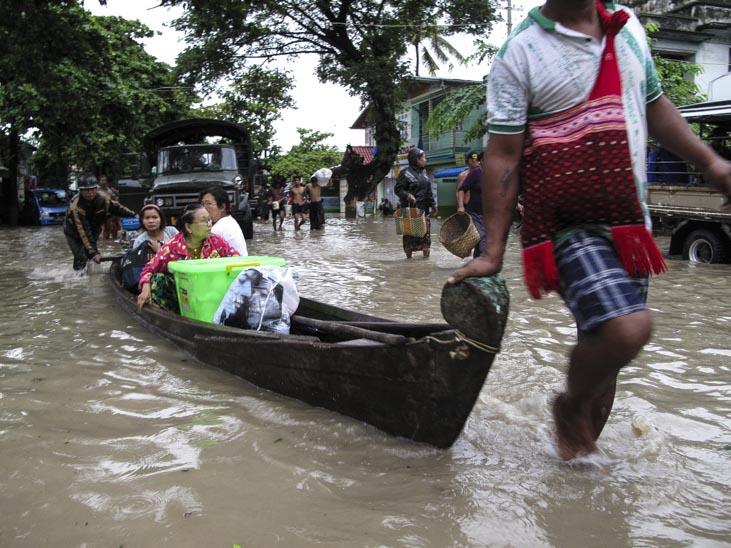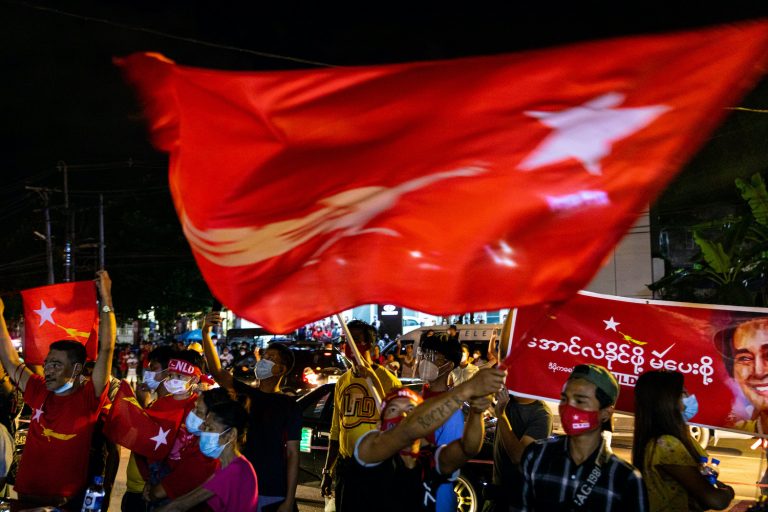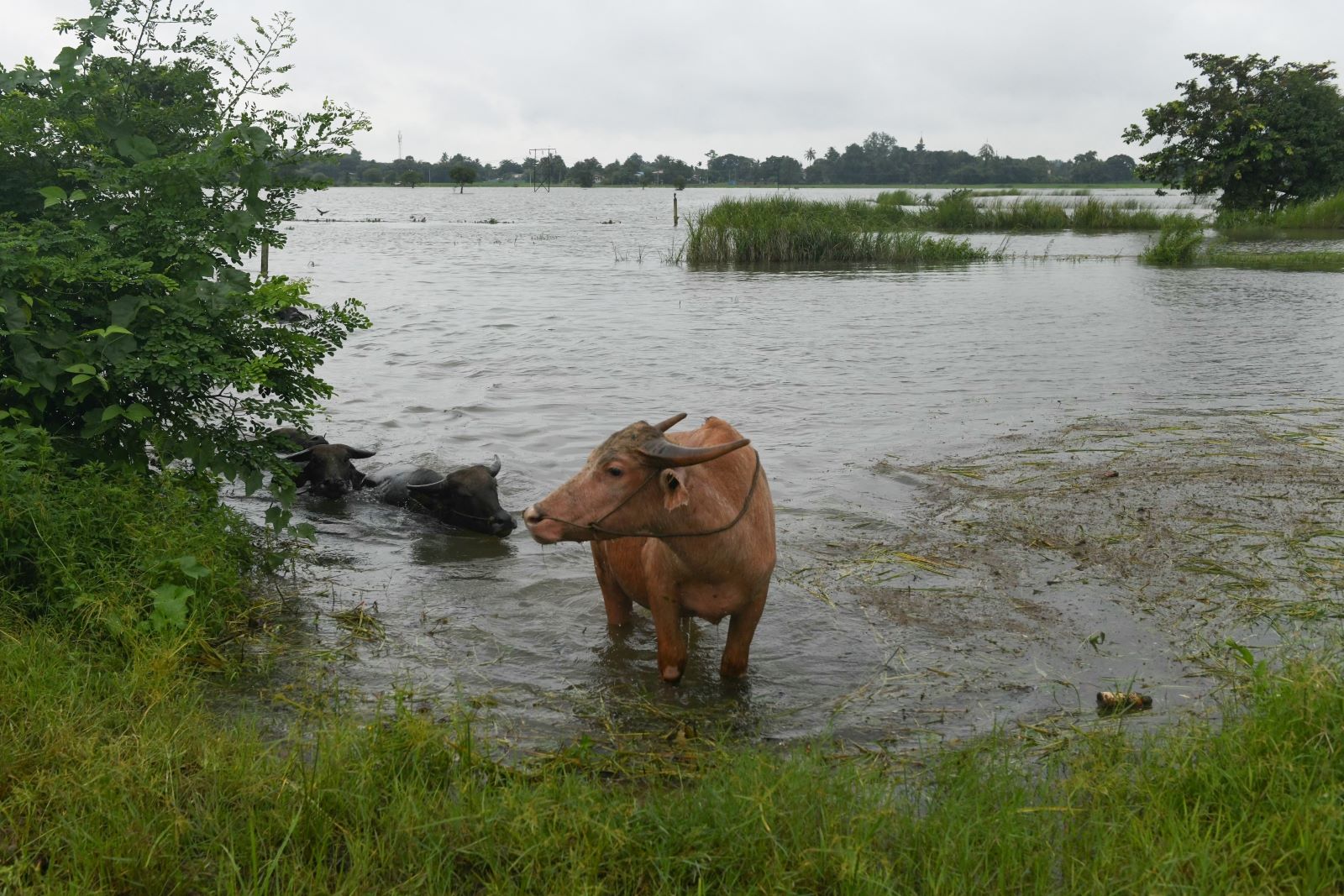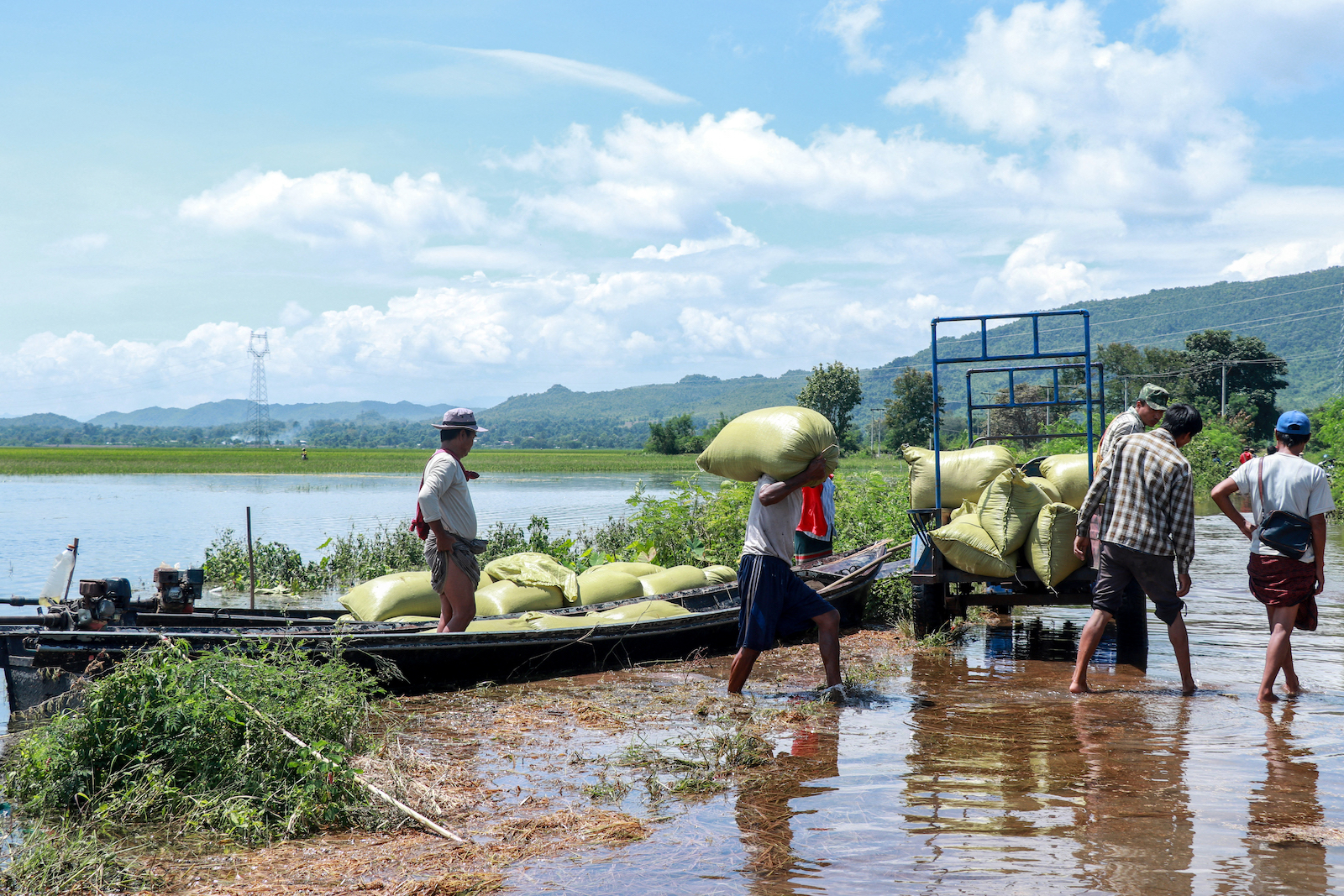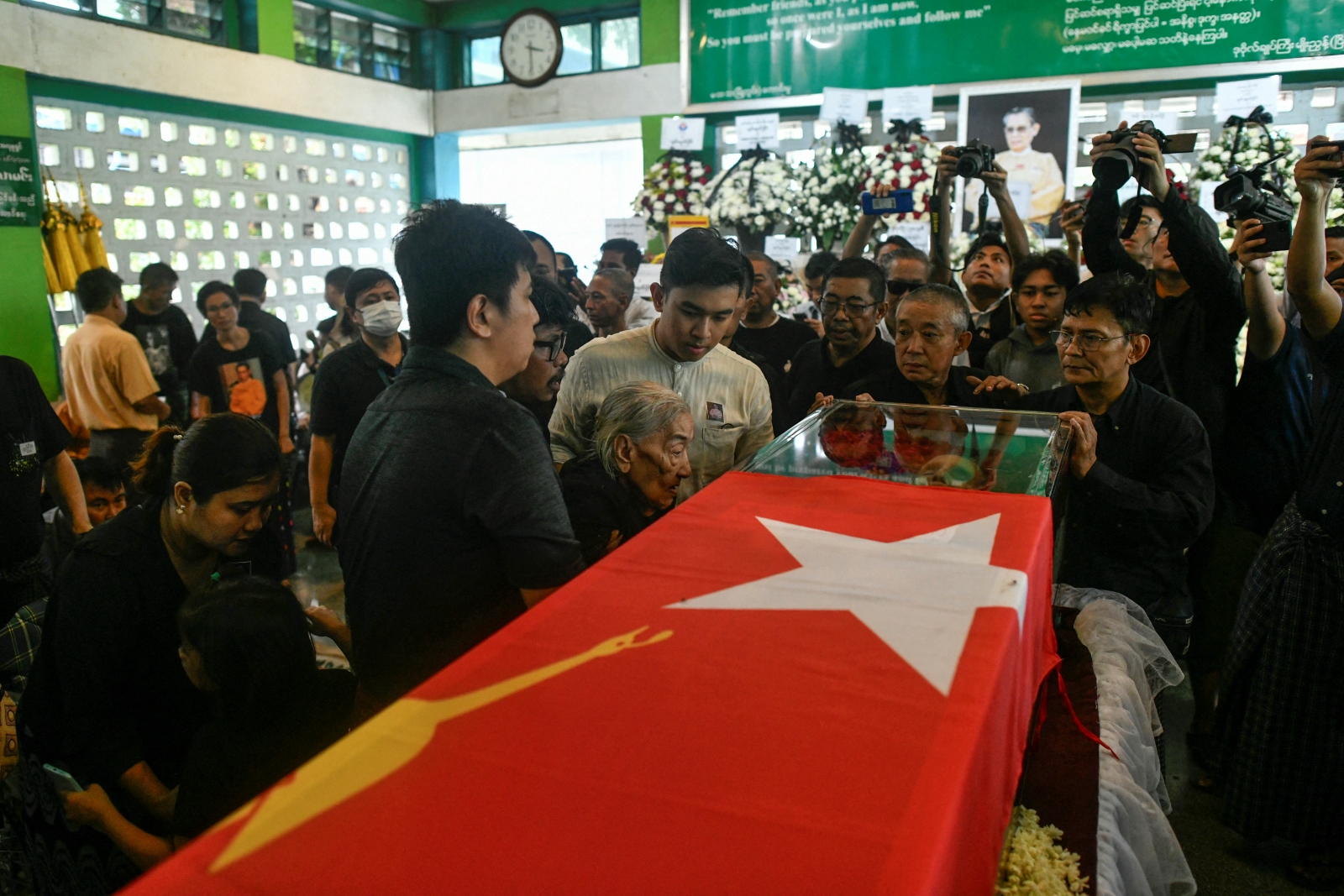Small parties have despaired over media attention given to ‘soft campaign’ flood relief activities by the Union Solidarity and Development Party and the National League for Democracy.
By MRATT KYAW THU | FRONTER
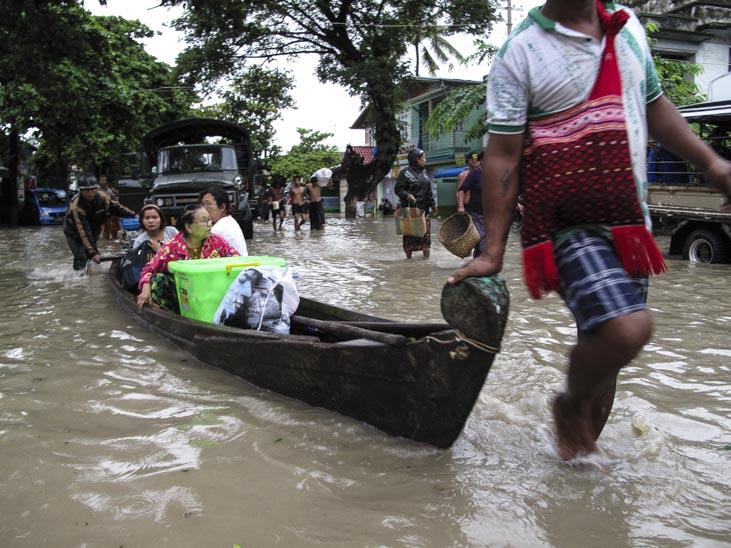
Flooding in Chin State. (Mratt Kyaw Thu / Frontier)
High-profile responses to the national flood disaster by the ruling Union Solidarity and Development Party and the opposition National League for Democracy have given them an unfair advantage in election campaigning, say smaller political parties.
Smaller parties also say the disruption to transport and communication links caused by the flooding, and recovery and rehabilitation efforts, will be a constraint on their activities during the 60-day campaign period that officially begins on September 8.
Some have likened the situation to the military government’s insistence on proceeding with a constitutional referendum in May 2008 within days of the Ayeyarwady Delta being devastated by Cyclone Nargis.
Support more independent journalism like this. Sign up to be a Frontier member.
“The military government went ahead with the referendum when people were suffering in the aftermath of Nargis,” the chairman of the Democratic Party for a New Society, U Aung Moe Zaw, told Frontier. “The situation is more and more resembling 2008 except that the flooding has affected a much bigger area,” he said, referring to flood damage in most of the nation’s 14 states and regions.
“The situation is getting worse for us, but getting better for them,” U Aung Moe Zaw said, referring to the USDP and the NLD, which have each recently donated K100 million (about US$78,000) for flood relief.
There have been media reports from Magway and Sagaing regions of aid being distributed at shelters for the homeless by USDP and NLD supporters wearing party T-shirts and waving party flags, in possible breach of election rules banning campaigning outside the 60-day period.
Small parties acknowledge that the assistance being provided throughout much of the nation by the big parties is welcomed by flood victims, but lament that they lack the resources to help even those in constituencies they intend to contest.
“We are also helping as individuals and not under our party’s flag,” the general secretary of the National Political Alliance, U Kyaw Thu Aung, told Frontier.
“We welcome the aid being provided by big parties to flood-affected people; they have big budgets, and many members and volunteers,” U Kyaw Thu Aung said.
“In politics, the power of money and the power of human resources is key,” he said.
U Kyaw Thu Aung, who is standing for election to the Yangon regional parliament in South Okkalapa Township, said he did not exploit the NUP’s name while distributing aid in flood shelters.
In common with many Myanmar who have responded to the disaster, he is helping as an individual and as a member of a philanthropic civil society group, by collecting donations of food, clothes and money.
“People know who can be a good representative for them and which party is working for them,” U Kyaw Thu Aung said.
As thousands languish in shelters or other emergency accommodation, an indirect effect of the flooding in many areas has been disruption to the election campaign planning of small parties, as well as efforts to widen their support base.
“Everyone is in trouble,” said U Ye Htun, chairman 88 Generation Students (Union of Myanmar) party.
“Political parties are trying to encourage people to be interested in politics but they are not and it’s not their fault; they are just trying to survive and the situation is getting worse and worse,” U Ye Htun said.
He said 88 Generation Students (Union of Myanmar) had abandoned election planning in constituencies it planned to contest – Moe Nyo Township in Bago Region and Pathein Township in Ayeyarwady Region – because its candidates’ houses were under water.
U Ye Htun said he had been unable to convene a party executive meeting to discuss election campaign strategy because most members were trying to recover from the flooding.
U Aung Moe Zaw said the Democratic Party for a New Society had experienced similar disruption.
“We could not form a campaign team in Ayeyarwady Region because flooding has left many of our members homeless,” he said, adding the mainstream parties had a big advantage over the smaller parties.
Civil society and volunteer groups in the three other worst-affected parts of the country – Rakhine State and Chin and Sagaing regions – predict a long recovery and rehabilitation phase.
“Most of the worst flood-hit areas will take more than a year to recover,” said Ko Thar Ngwe, who has been doing relief work in northern Rakhine State for the Yangon-based Youth Volunteers’ Network.
“The main concern of people there is not politics, it’s getting enough food,” Ko Thar Ngwe said. “This is not the time for people there to be thinking about choosing a candidate to vote for; their main concern is survival.”
(Title photo: Mratt Kyaw Thu / Frontier)


